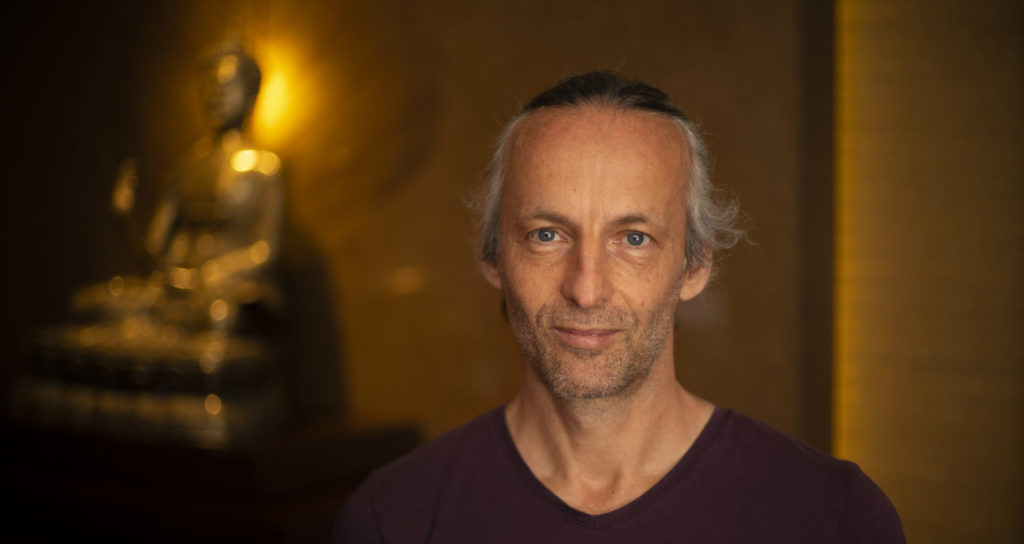
Teacher at Dharma Gate Buddhist College, Director of Dharma Gate Buddhist Church
(Meditation, Tibetan Buddhism, Yoga, Buddhist Practice)
A traditional teacher is someone who understands what they teach, clarifies their theses, breaks them down into parts, demonstrates logical connections, and then expects students to understand what they have understood during the exam. The most important question is: Do you understand? And if they do, the teacher is satisfied.
For me, “I don’t understand” is the starting point—I clarify what I don’t understand, break it down, and highlight inconsistencies within a logical system. Since my youth, “I don’t understand” has guided my research and thinking. I tried to understand through mathematics, then through various fields of life—why things happen the way they do. Whenever I understood something at university, I left the institution, which my surroundings never understood, and in 1991, I applied to the newly established Buddhist College, thinking: If I don’t understand the external world, maybe I’ll understand the internal one.
Questions filled my mind, such as:
Buddhist practice then raised another question: How?
In my experience, dissecting “I don’t understand” brings me closer to something internal, something more essential, something connected to our core. The “hows” are increasingly important to me—the correct posture, movement and breathing exercises, the precise application of meditation techniques, and the quality, even enjoyable, practice that allows us to see questions more clearly while making the answers seem less important.
Teaching, then, is nothing more than the development of intelligence—the cultivation of intelligence that arises from listening, thinking, and ultimately deep contemplation.
For me, this is the essence of teaching.
But WHY?
Date of Birth: 1970
Education:
Professional Qualifications:
Position:
Teaching Experience:
Professional Practice and Achievements:
Scientific / Professional Public Activities and International Relations:
Language Studies and Language Exams:
Publications List: Hungarian Science Bibliography